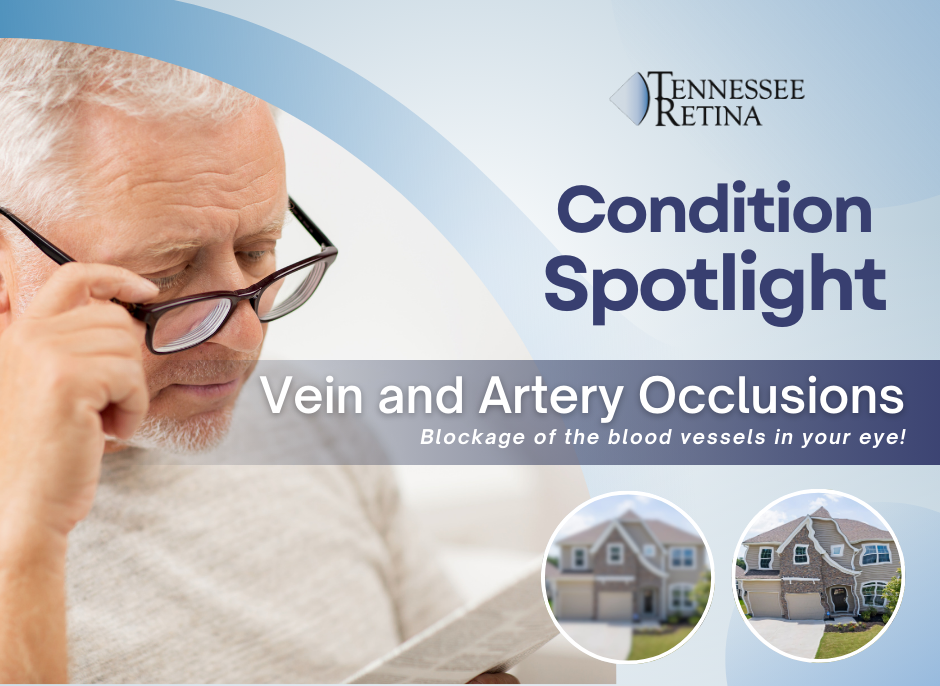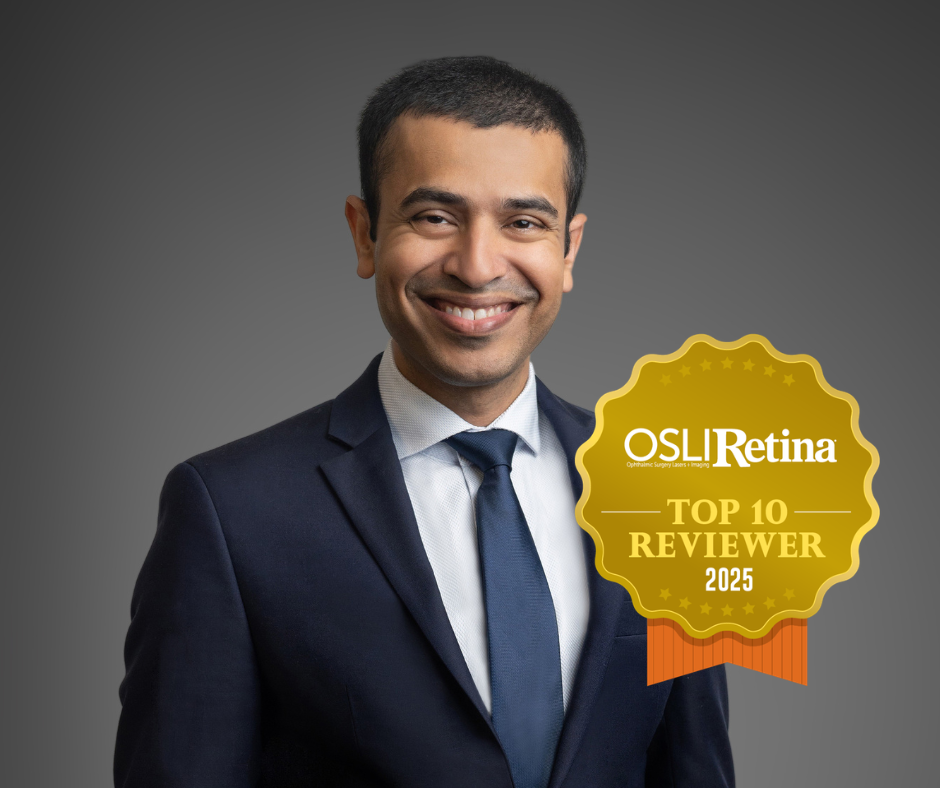Vein and Artery Occlusions: What They Are and Why They Matter

Your retina—the light-sensitive layer at the back of your eye—depends on a constant flow of oxygen-rich blood to function properly. This blood supply comes from tiny arteries and veins within the eye.
When one of these vessels becomes blocked (known as an occlusion), it can cause sudden and sometimes severe changes in vision. Prompt diagnosis and treatment are essential to protect your sight—and, in some cases, your overall health.
Retinal Artery Occlusions
An artery occlusion happens when the vessel that carries oxygen-rich blood to the retina is blocked. This is a very serious condition that can cause sudden vision loss. Because the same factors that cause retinal artery occlusions can also cause strokes, this is considered a medical emergency.
Types of retinal artery occlusions:
- Central Retinal Artery Occlusion (CRAO): A blockage in the main artery supplying the retina.
- Branch Retinal Artery Occlusion (BRAO): A blockage in a smaller branch of the main retinal artery.
Symptoms may include:
- Sudden, painless loss of vision in one eye
- Temporary episodes of vision loss (like a curtain coming down over the eye)
If you experience these symptoms, seek immediate medical attention and request urgent stroke evaluation.
Retinal Vein Occlusions
A vein occlusion occurs when the vessel that carries blood away from the retina becomes blocked. This can lead to swelling, bleeding, or fluid buildup in the retina, which can impair vision.
Types of retinal vein occlusions:
- Central Retinal Vein Occlusion (CRVO): A blockage in the main vein draining blood from the retina.
- Branch Retinal Vein Occlusion (BRVO): A blockage in one of the smaller veins branching from the main retinal vein.
Symptoms may include:
- Blurred or distorted vision
- New floaters (dark spots or strings in vision)
- Gradual or sudden changes in sight
While vein occlusions are often less abrupt than artery occlusions, untreated complications can still lead to severe vision loss.
Why Acting Quickly Is Critical
Both artery and vein occlusions can permanently damage your vision. The sooner you are evaluated by a retina specialist, the better your chances of preventing further damage and preserving sight.
In cases of artery occlusion, quick action could also identify a serious underlying health risk, such as a stroke or cardiovascular disease.
When to Call Your Eye Doctor
- Seek immediate medical attention if you notice:
- Sudden vision loss
- Blurred or distorted vision
- A dark shadow or curtain in your sight
- New floaters or flashes of light
Protecting Your Vision
At Tennessee Retina, we have advanced diagnostic tools and specialized treatments to manage retinal artery and vein occlusions. Our team works closely with your other healthcare providers to address both your eye health and any underlying conditions that could impact your overall well-being.
📞 If you notice sudden changes in vision, call your eye doctor immediately!
Learn more about retinal occlusions HERE



